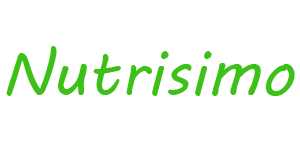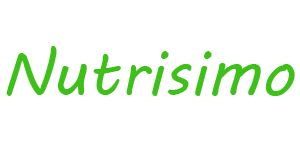Eating Smart for a Healthier Life
Maintaining a healthy diet is crucial for a healthy life. Eating smart is not only about what we eat but also about how much we eat and when we eat. In this article, we will provide you with a comprehensive guide on how to eat smart for a healthier life.
What is Eating Smart?
Eating smart is all about making informed and healthy food choices. It is not about restricting yourself from eating your favorite foods, but rather, it is about making small changes to your diet that can lead to big health benefits. Eating smart involves choosing foods that are rich in nutrients and low in calories, such as fruits, vegetables, whole grains, lean proteins, and healthy fats.
Benefits of Eating Smart
Eating smart has numerous health benefits, such as:
Weight management:
Eating smart can help you maintain a healthy weight or even lose weight if you are overweight. By choosing low-calorie and nutrient-dense foods, you can reduce your overall calorie intake and still feel full and satisfied.
Reduced risk of chronic diseases:
Eating smart can help reduce the risk of chronic diseases such as heart disease, diabetes, and certain types of cancer. This is because nutrient-dense foods are rich in antioxidants and other compounds that have been shown to have protective effects against these diseases.
Improved digestion:
Eating smart can improve digestion and reduce the risk of digestive problems such as constipation, bloating, and diarrhea. This is because nutrient-dense foods are rich in fiber, which helps regulate bowel movements and promotes healthy digestion.
Tips for Eating Smart
Plan your meals:
Planning your meals in advance is an essential aspect of eating smart. By planning your meals, you can make sure that you have healthy options available and avoid the temptation to indulge in unhealthy foods. Planning your meals can also help you save time and money, as you can shop for ingredients in advance and prepare meals in bulk. When planning your meals, make sure to include a variety of nutrient-dense foods, such as fruits, vegetables, whole grains, lean proteins, and healthy fats. You can also experiment with new recipes and cooking techniques to keep your meals interesting and enjoyable. With a little bit of planning, you can set yourself up for success and make eating smart a sustainable part of your lifestyle.
Choose nutrient-dense foods:
Choosing nutrient-dense foods is an essential part of eating smart. Nutrient-dense foods are packed with essential vitamins, minerals, and other nutrients that are important for maintaining good health. By choosing these foods, you can provide your body with the nutrients it needs to function at its best, without consuming excess calories. Fruits, vegetables, whole grains, lean proteins, and healthy fats are all examples of nutrient-dense foods that should be included in your diet. When selecting these foods, aim for a variety of colors and textures to ensure that you are getting a wide range of nutrients. Additionally, pay attention to portion sizes to make sure that you are not overeating, even with healthy foods. By choosing nutrient-dense foods, you can nourish your body and support your overall health and well-being.
Watch your portion sizes:
Controlling your portion sizes is a crucial element of eating smart and maintaining a healthy weight. By practicing portion control, you can prevent overeating and ensure that you are getting the right balance of nutrients. A simple way to control your portions is to use the "plate method," which involves dividing your plate into sections. Aim to fill half of your plate with a colorful variety of fruits and vegetables, which provide essential vitamins, minerals, and fiber. Then, fill one-quarter of your plate with lean proteins, such as chicken, fish, or tofu, to provide your body with the necessary building blocks for growth and repair. Finally, fill the remaining quarter of your plate with whole grains, such as brown rice or quinoa, to provide sustained energy throughout the day. By following this method, you can ensure that you are getting a balanced and nutrient-dense meal. Remember, it's not just about what you eat but how much you eat that counts, so be mindful of your portion sizes to support your health and well-being.
Limit processed foods:
Limiting your intake of processed foods is an important part of eating smart and maintaining good health. Processed foods are often high in calories, sodium, and unhealthy fats, which can contribute to weight gain, high blood pressure, and other health problems. To limit your intake of processed foods, try to choose whole, unprocessed foods instead. These foods are typically more nutrient-dense and can provide your body with the essential vitamins, minerals, and other nutrients it needs to function at its best. Examples of whole foods include fresh fruits and vegetables, whole grains, lean proteins, and healthy fats. When shopping for food, read food labels carefully to identify processed foods and choose options with minimal added sugars, sodium, and unhealthy fats. By limiting your intake of processed foods, you can support your health and well-being and enjoy the benefits of a nutrient-dense diet.
Stay hydrated:
Staying hydrated is an important aspect of eating smart and maintaining good health. Drinking plenty of water helps to keep your body hydrated, flush out toxins, and support your metabolism. Aim to drink at least 8 glasses of water per day, and if you're physically active or live in a hot climate, you may need to drink even more. Additionally, avoid sugary drinks such as soda and juice, as these can contribute to weight gain, high blood sugar levels, and other health problems. Instead, try to drink water or other unsweetened beverages, such as herbal tea or seltzer water. If you have trouble drinking plain water, try infusing it with fresh fruit or herbs to add flavor and make it more enjoyable. By staying hydrated with water and other healthy beverages, you can support your health and well-being and maintain optimal hydration levels throughout the day.
Conclusion
Eating smart is a key component of a healthy lifestyle. By making small changes to your diet and making informed food choices, you can reap numerous health benefits and improve your overall well-being. We hope that this guide has provided you with the information and tools you need to start eating smart today.
graph TD;
A[Eating Smart] --> B[Benefits of Eating Smart]
B --> C[Weight management]
B --> D[Reduced risk of chronic diseases]
B --> E[Improved digestion]
A --> F[Tips for Eating Smart]
F --> G[Plan your meals]
F --> H[Choose nutrient-dense foods]
F --> I[Watch your portion sizes]
F --> J[Limit processed foods]
F --> K[Stay hydrated]



